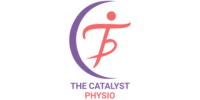Introduction:
In the vast landscape of healthcare, physiotherapy emerges as a beacon of hope for millions across the globe, extending its healing touch to those grappling with diverse health challenges. While traditionally associated with clinical settings, a new frontier is emerging – one that brings the essence of physiotherapy directly to the homes of patients. This evolving concept offers a blend of convenience, solace, and individualized attention, redefining the boundaries of care delivery. In this comprehensive exploration, we embark on a journey to unravel the profound healing potential embedded within the realm of home-based physiotherapy, shedding light on its myriad benefits, techniques, and transformative influence on holistic well-being.

Understanding Physiotherapy at Home:
Physiotherapy at home represents a transformative shift in healthcare delivery, where therapeutic interventions and exercise regimens are expertly administered within the cozy confines of one’s residence by skilled physiotherapists. This pioneering method not only dismantles barriers to accessibility but also ensures a seamless continuation of care, extending far beyond the conventional boundaries of clinical settings. Through the astute utilization of state-of-the-art technologies, effective telecommunication platforms, and meticulously crafted treatment plans tailored to individual needs, the paradigm of rehabilitative services undergoes a profound revolution. This holistic approach empowers individuals to initiate their healing journey, finding solace and support amidst the comforting familiarity of their home environment.

Benefits of Physiotherapy at Home:
- Convenience and Comfort: By choosing home-based physiotherapy, individuals free themselves from the need to repeatedly visit clinics or hospitals, bypassing the hassles of transportation and long waits. This form of treatment, delivered in the comfort of one’s own home, acts as a refuge for patients, providing a sense of comfort away from external pressures. The peacefulness of the home environment acts as a soothing setting, fostering a serene atmosphere that supports healing and recovery.
- Personalized Care: In contrast to the traditional approach of physiotherapy sessions, which often involve a generalized approach to accommodate multiple patients simultaneously, receiving physiotherapy in the comfort of one’s home represents a significant departure. Here, treatment plans are meticulously tailored to address the unique requirements and aspirations of each individual. This personalized approach not only enhances the effectiveness of therapy but also creates an environment conducive to sustained progress and lasting rehabilitation. By focusing on the specific needs and goals of each patient, home-based physiotherapy fosters a sense of ownership and dedication, paving the way for profound and enduring recovery.
- Enhanced Compliance and Engagement: The comforting ambiance of one’s home environment catalyzes enhanced adherence to prescribed exercises and interventions. Patients find themselves more deeply motivated and empowered, actively engaging in their journey toward rehabilitation. Moreover, the comforting presence of family members or dedicated caregivers offers invaluable encouragement, nurturing a profound sense of accountability within the individual.
- Improved Access to Care: Physiotherapy delivered remotely transcends mere physical distance, dismantling geographical barriers to ensure equitable access to vital rehabilitative services for all. Through the utilization of telehealth platforms and virtual consultations, individuals residing in remote or underserved regions can effortlessly engage with seasoned physiotherapists. This forward-thinking approach not only offers prompt guidance and assistance but also cultivates a culture of inclusivity and empowerment, bridging the divide between patients and high-quality healthcare regardless of their geographical limitations.

Techniques and Interventions:
Physiotherapy at home encompasses a diverse range of techniques and interventions tailored to address various musculoskeletal, neurological, and cardiopulmonary conditions. Some commonly employed modalities include:
- Exercise Therapy: Exercise therapy stands as the fundamental pillar of rehabilitation within the realm of home-based physiotherapy. It encompasses an extensive array of exercises, ranging from basic stretches to intricate resistance training routines, meticulously designed to enhance flexibility, endurance, and muscle function. Physiotherapists craft comprehensive exercise regimens that cater to the individualized requirements and abilities of each patient. These personalized plans not only target specific areas of concern but also aim to optimize overall physical well-being and functional capacity.
- Manual Therapy: Manual therapy techniques, such as joint mobilization, soft tissue mobilization, and massage, are commonly employed by physiotherapists to alleviate discomfort, ease muscle tension, and improve the flexibility of joints. Through the application of hands-on approaches, these skilled professionals are able to precisely address areas of dysfunction, thereby fostering the healing process within tissues and reinstating optimal functionality.
- Electrotherapy: Home-based physiotherapy programs often integrate various electrotherapy modalities to augment treatment effectiveness. These modalities, including transcutaneous electrical nerve stimulation (TENS), ultrasound, and electrical muscle stimulation, serve as invaluable tools for managing pain, alleviating inflammation, and accelerating tissue healing. By harnessing the power of these non-invasive techniques, individuals undergoing rehabilitation can experience significant symptomatic relief and expedited recovery. Moreover, the incorporation of electrotherapy into home-based physiotherapy regimens enhances treatment outcomes, complementing conventional therapeutic interventions with safe and targeted approaches to address specific musculoskeletal or neurological conditions.
- Education and Self-Management: Furthermore, apart from administering hands-on treatments, home-based physiotherapy places significant importance on educating patients and providing them with self-management strategies. Through the dissemination of knowledge covering various topics such as ergonomic principles and postural awareness, individuals are equipped with valuable insights and resources. These educational endeavors are geared towards empowering patients to actively participate in managing their conditions autonomously, ultimately enhancing their functional outcomes and minimizing the risk of future relapses.

Transformative Impact on Holistic Well-being:
The integration of physiotherapy into the home environment extends far beyond mere physical rehabilitation; it permeates every facet of holistic well-being. By nurturing independence, bolstering functional capacity, and elevating overall quality of life, the practice of physiotherapy at home bestows upon individuals the invaluable gift of regaining mastery over their health and vitality. Furthermore, the unbroken thread of care and unwavering support woven into the fabric of home-based physiotherapy programs instills a profound sense of resilience and optimism within patients. Armed with this newfound confidence and unwavering determination, individuals are empowered to confront the challenges of recovery head-on, embarking on their journey with unwavering conviction and a renewed zest for life.

Conclusion:
In conclusion, the rise of home-based physiotherapy marks a profound evolution in rehabilitative healthcare, offering a beacon of optimism for those grappling with physical obstacles and yearning to reclaim their autonomy. Through the integration of tailored treatments, cutting-edge technologies, and patient-centric approaches, this transformative model transcends conventional boundaries, breathing new life into the realm of wellness. As we champion empowerment, inclusivity, and ingenuity, let us seize the boundless potential of home-based rehabilitation to foster a future where every individual can flourish and thrive on their path to well-being.
FAQ’s:-
- What is physiotherapy at home?
- Physiotherapy at home refers to the delivery of rehabilitative services and interventions within the comfort and convenience of one’s residence. Qualified physiotherapists provide personalized treatment plans, including exercises, manual therapy, and education, to facilitate recovery and improve functional outcomes.
- How does physiotherapy at home differ from traditional physiotherapy?
- Unlike traditional physiotherapy settings, which often require visits to clinics or hospitals, physiotherapy at home brings rehabilitative care directly to the patient’s doorstep. This innovative approach offers convenience, personalized attention, and continuity of care within the familiar environment of the home.
- Who can benefit from physiotherapy at home?
- Physiotherapy at home is suitable for individuals of all ages and conditions, including those recovering from surgery, managing chronic pain, rehabilitating from injuries, or seeking to improve mobility and function. It offers tailored treatment plans designed to address the specific needs and goals of each individual.
Dr. Priyanka Bharadwaj (Physiotherapist)
Introducing CB Home Physiotherapist: Meet Dr. Priyanka Bharadwaj, a highly skilled female physical therapy expert based in Khanpur, Delhi. She brings her expertise right to your doorstep, offering personalized physiotherapy services in Khanpur and nearby areas.
With a solid background in home physiotherapy, Dr. Priyanka specializes in treating a wide range of conditions, including back pain, neck pain, knee pain, sciatica, and more. She’s also adept at post-surgery rehabilitation, helping patients recover from procedures like shoulder, knee, and hip replacements.
In addition to her two years of experience in hospitals and clinics, Dr. Priyanka has honed her skills in various specialties such as pediatric, geriatric, neurological, and musculoskeletal physiotherapy. Whether it’s helping children regain mobility or assisting seniors with balance issues, she’s dedicated to improving her patients’ quality of life.
Dr. Priyanka holds a Bachelor’s degree in Physiotherapy from the Manav Rachna International Institute of Research and Studies. Her compassionate approach and commitment to patient well-being make her a trusted choice for anyone seeking expert physiotherapy care in the comfort of their own home.


